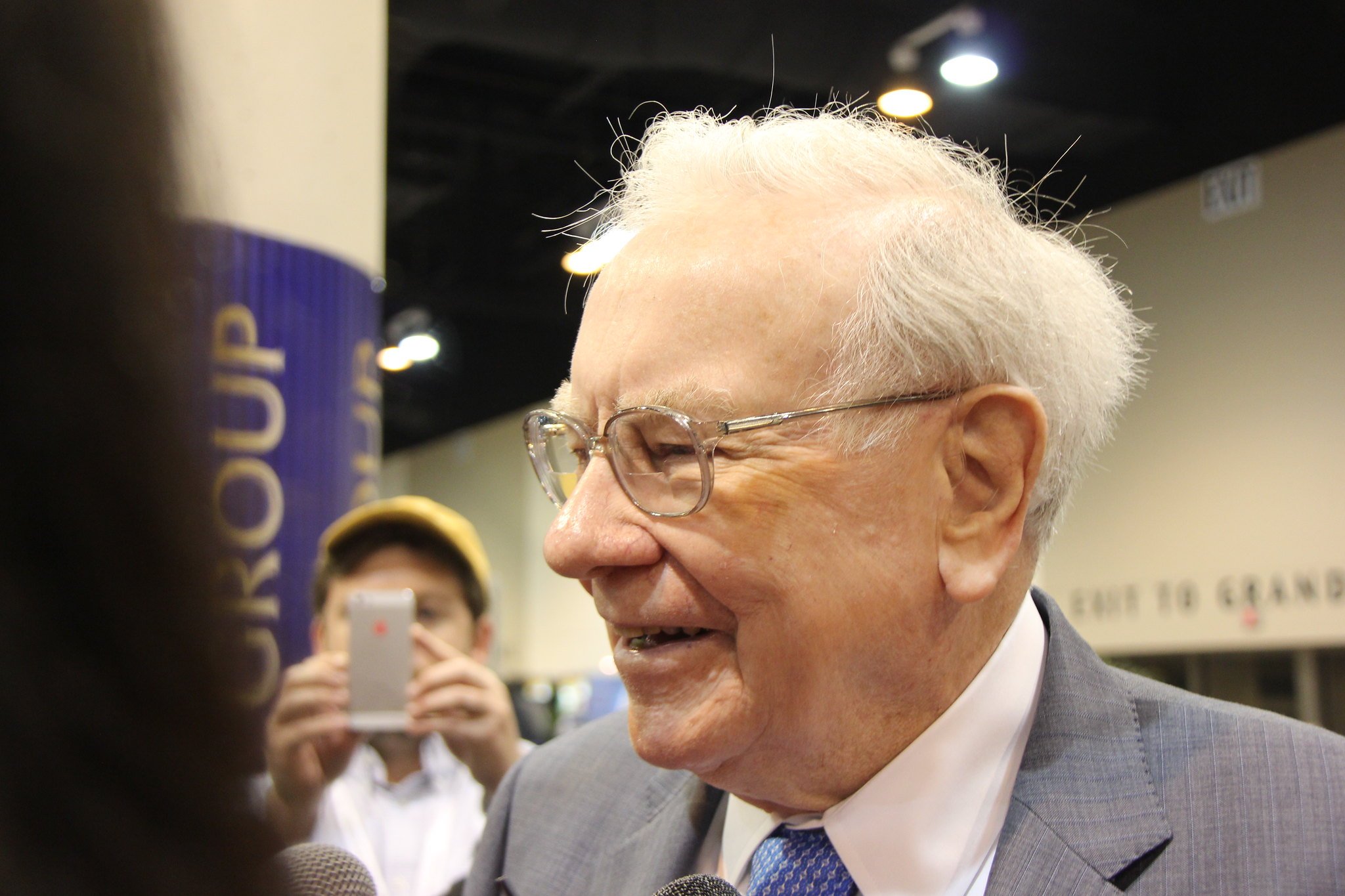Warren Buffett is about to become the largest shareholder of Bank of America (BAC +0.23%). This isn't a surprise, as Buffett all but said as much in his shareholder letter this year that his company Berkshire Hathaway (NYSE: BRK-A) (NYSE: BRK-B) was on the verge of doing so, but it nevertheless marks a critical inflection point in Bank of America's history.
There is no greater seal of approval in the bank industry than having Buffett's Berkshire Hathaway as a shareholder. The 86-year-old billionaire is hands down the best bank investor in the United States. And the bank stocks he invests in tend to trade for a premium to their peers.

Warren Buffett, the chairman and CEO of Berkshire Hathaway. Image source: The Motley Fool.
The portfolio of bank stocks he's amassed reads like a who's who list of the best-run banks in the country. There's Wells Fargo (WFC 0.17%), which recently ran into trouble with shady sales practices in its consumer bank, but has otherwise long been at the top of the industry in terms of prudence and profitability.
There's U.S. Bancorp (USB 0.39%), the gold standard in the industry in terms of balancing revenue and risk. There's M&T Bank (MTB +0.06%), which has produced one of the highest shareholder returns in the stock market since Robert Wilmers took the reins in 1983. And there's Bank of New York Mellon (BK 1.29%), which has one of the deepest competitive moats in the bank industry with a $31 trillion portfolio of custodial assets.
This is a good group of banks to be associated with, particularly for Bank of America. Since the financial crisis, the North Carolina-based bank has spent upward of $200 billion on crisis-related expenses -- loan charge-offs, legal expenses, elevated operating costs, etc. The situation got so dire that Bank of America was forced early in the crisis to more than double its share count at the worst possible time, when its shares traded for a substantial discount to book value.
The net result of Bank of America's performance before, during, and after the crisis is that its longtime shareholders saw the value of their stakes plummet. Shares of the bank peaked in 2006 at $55 a share, only to fall to less than $5 a share a little over two years later. Even today, after Bank of America's turnaround has gained traction, its share price today has only recovered to roughly where it was in the mid-1990s.
Bank of America would have obviously preferred to have avoided all of this, but its consolation prize will soon be having Buffett as its biggest shareholder. Indeed, it was the steep decline in Bank of America's share price that attracted Buffett, who called the bank's CEO, Brian Moynihan, in 2011 to offer some of Berkshire's cash in exchange for a preferentially structured stake in the bank.
It was a deal only Buffett could arrange. In exchange for $5 billion, Berkshire got $5 billion worth of preferred stock that yields 6% a year, equating to $300 million in annual dividends. As a kicker, Berkshire received warrants to purchase 700 million shares of Bank of America's stock at $7.14 a share. The warrants last 10 years, into 2021.
These two components go together in an interesting way. If you multiply $7.14 a share by 700 million shares, you get $5 billion. This matters because of the way Berkshire intends to exercise its right to purchase the bank's stock. Instead of giving Bank of America $5 billion, Berkshire will just exchange its $5 billion worth of preferred stock for 700 million shares of common stock, as Buffett explained in his most recent letter to shareholders:
If the dividend rate on Bank of America common stock -- now 30 cents annually -- should rise above 44 cents before 2021, we would anticipate making a cashless exchange of our preferred into common. If the common dividend remains below 44 cents, it is highly probable that we will exercise the warrant immediately before it expires.

Bank of America Plaza overlooks Dealy Plaza in Dallas, Texas. Image source: Getty Images.
Berkshire thereby made its decision to exercise these warrants after Bank of America announced that it intends to raise its dividend, starting with its third-quarter payout. As Berkshire explained in a press release:
On June 28, 2017, Bank of America Corporation announced that it plans to increase its quarterly dividend to $0.12 per common share. When this occurs, Berkshire will exercise its warrants to acquire 700,000,000 shares of Bank of America Common Stock at the exercise price of $7.142857 per common share. Pursuant to the terms of the warrants, Berkshire expects to use its $5 billion of Bank of America Corporation 6% Preferred Stock that it currently owns as the consideration to acquire the common shares.
The tangible impact from this will be all but indiscernible to the ordinary investor, but the intangible impact should be significant. Like every other bank Buffett is invested in, Bank of America certainly appreciates the value of his seal of approval. It seems fair therefore to assume that the bank will strive to stay in his good graces, which means prudently producing excellent returns over a long period of time.













